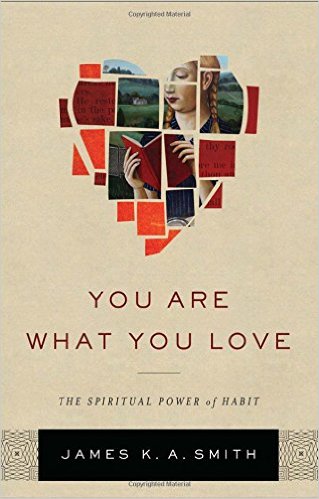 In part 1 of the series, we explored how it’s not what we cognitively believe that directs us but what has captures our love and imagination. As Christians, we know the right answers for what we should love: Jesus, His Kingdom, etc. The problem is that this often doesn’t match reality.
In part 1 of the series, we explored how it’s not what we cognitively believe that directs us but what has captures our love and imagination. As Christians, we know the right answers for what we should love: Jesus, His Kingdom, etc. The problem is that this often doesn’t match reality.
Smith argues that what we truly love is “manifested by [our] daily life and habits” (29). Put simply, we have habits of behavior that reinforce or change what we love, how we view the world, and how we behave despite the fact that we’re often completely unaware that they are affecting us. The “formative practices that do something to you, unconsciously” (37) Smith calls “liturgies” because of how they wrap the practitioner into an (alternative) ultimate story with rival visions of obtaining the good life. Continue reading You Might Not Love What You Think: Learning to Read “Secular” Liturgies →

 252.264.2254
252.264.2254
 820 Old Okisko Rd
820 Old Okisko Rd
 Email us
Email us
 facebook.com/ecityemc
facebook.com/ecityemc